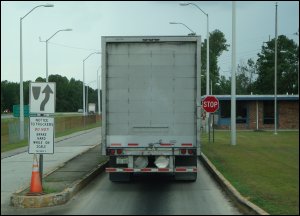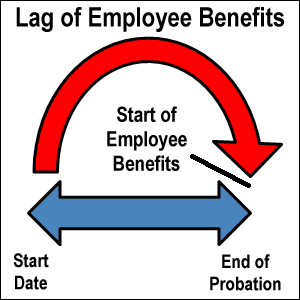The reasons why someone would want to become a truck driver must be balanced with what the job requires, both personally and professionally.
 The following is our overview of the subject.
The following is our overview of the subject.
While some people have only ever dreamed of becoming a truck driver, others of us have gotten into the transportation industry other ways.
Did you know that not everyone is cut out to drive a truck professionally?
Why would anyone pursue this occupation?
The Advantages of Becoming a Truck Driver
These are among the decided advantages of being a long-haul professional driver:
- relative job stability (with the exception of the economic downturn), because 67 percent of total U.S. freight tonnage was hauled by truck in 2011(1);
- trucker pay, most often calculated on a per-mile basis, paid on the number of loads you haul, often with annual increases (capped by the Hours of Service allowed by federal law);
- opportunity to see the area of the country where you drive (with the exception of truly tourist-oriented places where commercial vehicles are forbidden);
- employee benefits, which may be provided by a motor carrier after a driver has been with the company for a pre-determined probationary period;
- opportunity to earn bonuses, which may include a To the person who has become a truck driver, the following situations that can occur can be looked upon as advantages; but to many people who are used to working a standard 40-hour work week and being home every night, they can be looked upon as disadvantages:
- working up to 70 “hours of service” hours each week (although truckers are often required to do
tasks for which they aren’t paid); - spending days — and sometimes weeks — away from home (including being away from one’s home support team and having to deal with health and wellness issues on the road);
- living, working, and sleeping in your truck;
- showering in places away from home;
- cooking and eating food in your truck (for those who do it) — or having to pay for a lot of restaurant, deli or fast food meals; and
- making your truck your new home sweet home.
Depending on the loads you haul, you may have delivery appointments at all hours of the day and night.
For example, many a grocery warehouse has delivery appointments between 1 a.m. – 4 a.m. and you
cannot park on the premises to sleep.Finding a truck stop or other location that has safe parking during the very early hours of the morning can be very challenging.
To truly understand what it means to become a truck driver, you also need to know….
The Duties and Responsibilities of Professional Truck Drivers
 There’s more to becoming a truck driver than getting your CDL and having a truck.
There’s more to becoming a truck driver than getting your CDL and having a truck.Whether you drive for a company (are a “company driver”) or own your own truck (are an “owner operator”), when you become a truck driver, you will be responsible for your truck around the clock, including:
- accepting loads assigned to you (or getting your own loads);
- regularly inspecting your truck to make sure that it is roadworthy and safe to drive;
- planning your trip, including your route, stops for fuel, and deciding where you will park to eat, shower, and sleep, all the while making sure you use truck routes, don’t drive under low clearance overpasses, and don’t cross over bridges that can’t handle your loaded truck’s weight;
- safely picking up assigned loads on time;
- signing paperwork for loads picked up;
- weighing your truck when hauling heavier loads, to make sure
that no more than the maximum amount of weight is on a particular set of axles; - adjusting the settings on your truck and trailer — most often sliding the trailer’s tandems — when required for shifting axle weight;
- securing loads according to your company’s and the shipper’s requirements (sometimes with the aid of load straps, load locks, tarps, chains, bar locks, padlocks, etc.);
- keeping accurate records of all your load information, which may be received via Qualcomm satellite communication;
- safely driving your truck through all kinds of weather, on all kinds of roads, that may or may not be congested and that may or may not be under construction;
- following all regulations set down by the Federal Motor Carrier Safety Administration;
- when applicable, following the rules regarding hauling hazardous materials (“HazMat”);
- obeying all rules of the road, including going into open weigh stations along your route;
- safely delivering loads on time;
- keeping your truck properly maintained, including getting annual inspections, “A” services, and “B” services done as required;
- having your truck repaired when required;
- keeping your truck’s IFTA and license tag decals and permit book up-to-date;
- keeping your truck clean inside and out;
- arranging to arrive at shippers and consignees by the appointment times that have been set;
- keeping an accurate record of your activities in your log book, bearing in mind the limitations placed on your work by the Federal Motor Carrier Safety Regulations;
- turning in your paperwork to consignees, your
company, and any other assignee so that you can be paid; and - being a good representative of the trucking industry.
The Qualifications of Becoming a Truck Driver
Certain qualifications must be met before a person can become a truck driver. You will want to review the federal rules on these pages:
- Part 391: Qualifications of drivers and longer combination vehicle (LCV) driver instructors.
- § 391.11: General qualifications of drivers.
Some college-educated folks, like us, have successfully transitioned from white collar work to become a truck driver.
Our whole view of the transportation industry changed for the better in 1992, the year we went to truck driver training school.
We feel blessed by our many experiences on the road.
How to Become a Truck Driver
 There are a number of ways that eligible adults can train to become truck drivers. The most common are training through:
There are a number of ways that eligible adults can train to become truck drivers. The most common are training through:- private schools (for-profit businesses);
- motor carriers (also called “company-paid” truck driver training); and
- public institutions (funded at least partially by the government, these include trade, vocational or technical schools; community colleges; and some state colleges).
Occasionally, you will hear of a company that lets an experienced driver teach his or her spouse how to drive a truck.
Each training entity has advantages and disadvantages, which we describe in detail on our truck driver training schools page.
Every prospective truck driver must first acquire the knowledge (via
classroom training) and skills (via driving range training) to get a
CDL (commercial driver’s license) and then get a job.While going through truck driver training can prepare
you regarding the knowledge and skills that you will need to get a
truck
driving job, nothing replaces actual truck driving
experience.Becoming a Truck Driver Requires Professionalism
Since truck drivers are responsible for so many tasks, the old adage that they are “steering wheel holders” is simply not true.
Professional truck drivers aren’t just one notch above amateurs; they should exude the attitude of being professionals who know their work thoroughly and can deliver not just loads but excellent customer service!
Becoming a truck driver includes much more than just going to trucking school or spending time with a trainer; one needs to understand — and be willing to commit to — both the sacrifices and
the rewards of life on the road.When Becoming a Truck Driver Clashes With Your
Style Some people who enter truck driver training school wash out because it requires too much responsibility and they don’t want to give up their personal vices (like drugs) or personal habits (like speeding). These folks should never have tried to become a truck driver in the first place!
Some people who enter truck driver training school wash out because it requires too much responsibility and they don’t want to give up their personal vices (like drugs) or personal habits (like speeding). These folks should never have tried to become a truck driver in the first place!In fact, when we were in truck driver training school, at least one of the student drivers was expelled from the program because he had used drugs while there!
It was a good thing that he was terminated.
Why?
Think of what kind of danger there might have been had he been allowed to continue, been hired by a trucking company and caused an accident behind the wheel of a big rig!
Still, other people who survive truck driver training long enough to become a truck driver wash out within the first few weeks after being hired because they didn’t understand the demands and requirements that would be placed on them. These folks should have done more research on the requirements of becoming a truck driver before going into the occupation!
That’s why we’ve gone into such detail on this page.
Perhaps you’ll learn more from true life examples of students from our truck driver training class who succeeded or failed to become a truck driver.
You may also benefit from reading our article entitled “A Trucker Transition: Living Full-Time in Your Semi Tractor-Trailer
Truck,” which chronicles our own personal journey.We also cover the issue of truck driver salary or pay.
Beware the Benefits Lag When You Become a Truck Driver
 As a general rule, if you hire on with a trucking company with a standard employee benefits package, you will need to complete a probationary period (be employed for up to 90 days) before some benefits are available to you.
As a general rule, if you hire on with a trucking company with a standard employee benefits package, you will need to complete a probationary period (be employed for up to 90 days) before some benefits are available to you.Depending on your company, these benefits may include major medical health insurance, dental care, vision coverage, etc.
Accidents can happen at any time — to even the safest of
drivers.Just because you have become a truck driver — a professional truck driver, at that — does not mean you are immune.
If you are a new driver whose health insurance coverage is not yet active and you are involved in an accident — or other catastrophic event — you may find yourself with a very large bill to pay and no income to pay for it.
If you do not want a lag or lapse in your coverage between your current job and the time when your benefits coverage begins in your new truck driving job, you will need to make alternative arrangements.
As we mention on our Health and Wellness page, commercial truck driving is among the deadliest of occupations.
Please bear this reality in mind when you consider becoming a truck driver.
Additional Resources: Become a Truck Driver
 Money saving tip: If you’re wondering if you’re meant to become a truck driver, we advise that you talk with other drivers about the practicality of life on the
Money saving tip: If you’re wondering if you’re meant to become a truck driver, we advise that you talk with other drivers about the practicality of life on the
road.If you personally know a professional driver, it would be a good idea to travel with him or her at least once to see if that lifestyle works for you.
Professional drivers run the gamut from long-haul driving of heavy trucks to local driving of light duty trucks.
Select the type of job that will best fit you.
Do not pump your money into truck driver training — or your time into company-paid CDL training — until you understand what will be involved.
If this applies to you, bring your dreams, fantasies or fascination with becoming a truck driver into the realm of reality.
(Hint: “B.J. and the Bear” was a fictional TV show.)
If you are extremely extroverted, realize that unless you are part of a team, driving a long-haul truck alone for days or weeks at a time with little human
interaction may not be right for you.If you desire to become a truck driver and drive solo, bear in mind the opening of a November 30, 2010 article from MarketWatch:
“Living alone can mean more freedom to do what you want, when you want, but solo dwellers also are more prone to unhealthy habits that increase their risk of serious illness or mortality compared to those who live with others.”(2)
If you are determined, seek in advance what you will do to overcome the odds. Resources are available.
References:
1. dc.citybizlist.com/article/ata-truck-tonnage-sees-largest-year-over-year-gain-february (no longer online)
2. http://www.marketwatch.com/story/living-alone-can-be-dangerous-for-your-health-2010-11-30
- working up to 70 “hours of service” hours each week (although truckers are often required to do






